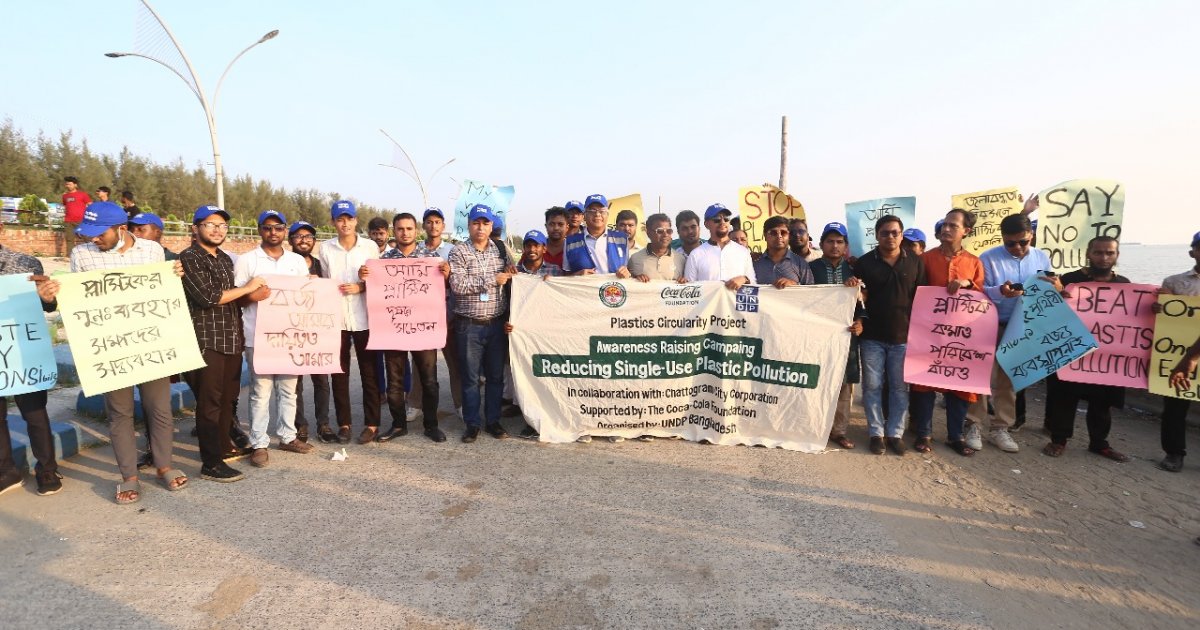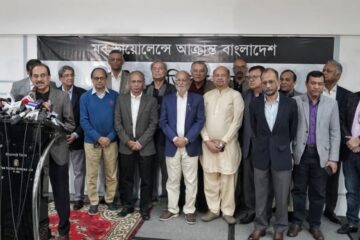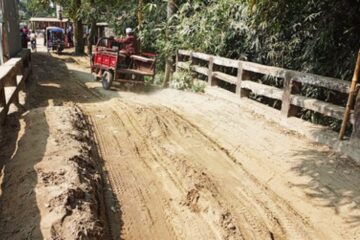The United Nations Development Programme (UNDP) Bangladesh, in collaboration with the Chittagong City Corporation (CCC), organized an awareness campaign on Friday at Patenga Sea Beach, urging citizens to take collective responsibility in tackling single-use plastic pollution.
The event brought together city leaders, development partners, and community members in a shared commitment to protect Patenga and promote sustainable habits for a cleaner future, said a press release issued on Friday.
Speaking as the chief guest Dr Shahadat Hossain, mayor of Chittagong City Corporation, said: “Patenga is one of our most visited coastal destinations, yet plastic pollution threatens its beauty and ecosystem.”
He added: “Through this initiative, we want to build a culture of responsibility where every visitor and resident contributes to keeping our beaches clean and our oceans healthy.”
Sarder M Asaduzzaman, assistant resident representative of UNDP Bangladesh, emphasized the ecological importance of Patenga, saying: “Patenga is not just a beach—it’s a symbol of pride for Chittagong. But every day, it suffers from plastic waste that threatens marine life, public health, and our livelihoods. This is a call to action for all of us.”
Bangladesh produces around 800,000 tons of plastic waste annually, with Chittagong contributing nearly 3,000 tons daily. Much of this ends up in the Karnaphuli River and the Bay of Bengal, posing serious risks to biodiversity and coastal communities.
Throughout the day, youth volunteers led beach clean-ups, installed eco-friendly bins and signboards, and encouraged visitors to pledge against plastic use.
Awareness messages highlighted the impact of plastic waste on marine biodiversity and the importance of responsible consumption.
Students from schools, universities, and community groups joined the drive, demonstrating how small, coordinated actions can lead to lasting change.
The event is part of the Plastics Circularity Project, implemented by UNDP Bangladesh with support from The Coca-Cola Foundation.
The initiative aims to recover and responsibly manage 15,000 tons of plastic waste across Chittagong, Cox’s Bazar, and Tangail, transforming plastic from a pollutant into a reusable resource.



